Medical
Industrial
Commercial
Homecare
Transportation
Mattresses
Cushions
Overlays
Wheelchair Seating
Footwear
Hospitals
Nursing Homes
Home Health Care
Rehabilitation Centers
Online
Offline
Direct Sales
Third-Party Retailers
North America
Europe
South America
Asia Pacific
Middle East and Africa
North America Outlook (USD Billion, 2019-2035)
North America Pressure Relief Device Market by Application Type
Medical
Industrial
Commercial
Homecare
Transportation
North America Pressure Relief Device Market by Type
Mattresses
Cushions
Overlays
Wheelchair Seating
Footwear
North America Pressure Relief Device Market by End Use Type
Hospitals
Nursing Homes
Home Health Care
Rehabilitation Centers
North America Pressure Relief Device Market by Distribution Channel Type
Online
Offline
Direct Sales
Third-Party Retailers
North America Pressure Relief Device Market by Regional Type
US
Canada
US Outlook (USD Billion, 2019-2035)
US Pressure Relief Device Market by Application Type
Medical
Industrial
Commercial
Homecare
Transportation
US Pressure Relief Device Market by Type
Mattresses
Cushions
Overlays
Wheelchair Seating
Footwear
US Pressure Relief Device Market by End Use Type
Hospitals
Nursing Homes
Home Health Care
Rehabilitation Centers
US Pressure Relief Device Market by Distribution Channel Type
Online
Offline
Direct Sales
Third-Party Retailers
CANADA Outlook (USD Billion, 2019-2035)
CANADA Pressure Relief Device Market by Application Type
Medical
Industrial
Commercial
Homecare
Transportation
CANADA Pressure Relief Device Market by Type
Mattresses
Cushions
Overlays
Wheelchair Seating
Footwear
CANADA Pressure Relief Device Market by End Use Type
Hospitals
Nursing Homes
Home Health Care
Rehabilitation Centers
CANADA Pressure Relief Device Market by Distribution Channel Type
Online
Offline
Direct Sales
Third-Party Retailers
Europe Outlook (USD Billion, 2019-2035)
Europe Pressure Relief Device Market by Application Type
Medical
Industrial
Commercial
Homecare
Transportation
Europe Pressure Relief Device Market by Type
Mattresses
Cushions
Overlays
Wheelchair Seating
Footwear
Europe Pressure Relief Device Market by End Use Type
Hospitals
Nursing Homes
Home Health Care
Rehabilitation Centers
Europe Pressure Relief Device Market by Distribution Channel Type
Online
Offline
Direct Sales
Third-Party Retailers
Europe Pressure Relief Device Market by Regional Type
Germany
UK
France
Russia
Italy
Spain
Rest of Europe
GERMANY Outlook (USD Billion, 2019-2035)
GERMANY Pressure Relief Device Market by Application Type
Medical
Industrial
Commercial
Homecare
Transportation
GERMANY Pressure Relief Device Market by Type
Mattresses
Cushions
Overlays
Wheelchair Seating
Footwear
GERMANY Pressure Relief Device Market by End Use Type
Hospitals
Nursing Homes
Home Health Care
Rehabilitation Centers
GERMANY Pressure Relief Device Market by Distribution Channel Type
Online
Offline
Direct Sales
Third-Party Retailers
UK Outlook (USD Billion, 2019-2035)
UK Pressure Relief Device Market by Application Type
Medical
Industrial
Commercial
Homecare
Transportation
UK Pressure Relief Device Market by Type
Mattresses
Cushions
Overlays
Wheelchair Seating
Footwear
UK Pressure Relief Device Market by End Use Type
Hospitals
Nursing Homes
Home Health Care
Rehabilitation Centers
UK Pressure Relief Device Market by Distribution Channel Type
Online
Offline
Direct Sales
Third-Party Retailers
FRANCE Outlook (USD Billion, 2019-2035)
FRANCE Pressure Relief Device Market by Application Type
Medical
Industrial
Commercial
Homecare
Transportation
FRANCE Pressure Relief Device Market by Type
Mattresses
Cushions
Overlays
Wheelchair Seating
Footwear
FRANCE Pressure Relief Device Market by End Use Type
Hospitals
Nursing Homes
Home Health Care
Rehabilitation Centers
FRANCE Pressure Relief Device Market by Distribution Channel Type
Online
Offline
Direct Sales
Third-Party Retailers
RUSSIA Outlook (USD Billion, 2019-2035)
RUSSIA Pressure Relief Device Market by Application Type
Medical
Industrial
Commercial
Homecare
Transportation
RUSSIA Pressure Relief Device Market by Type
Mattresses
Cushions
Overlays
Wheelchair Seating
Footwear
RUSSIA Pressure Relief Device Market by End Use Type
Hospitals
Nursing Homes
Home Health Care
Rehabilitation Centers
RUSSIA Pressure Relief Device Market by Distribution Channel Type
Online
Offline
Direct Sales
Third-Party Retailers
ITALY Outlook (USD Billion, 2019-2035)
ITALY Pressure Relief Device Market by Application Type
Medical
Industrial
Commercial
Homecare
Transportation
ITALY Pressure Relief Device Market by Type
Mattresses
Cushions
Overlays
Wheelchair Seating
Footwear
ITALY Pressure Relief Device Market by End Use Type
Hospitals
Nursing Homes
Home Health Care
Rehabilitation Centers
ITALY Pressure Relief Device Market by Distribution Channel Type
Online
Offline
Direct Sales
Third-Party Retailers
SPAIN Outlook (USD Billion, 2019-2035)
SPAIN Pressure Relief Device Market by Application Type
Medical
Industrial
Commercial
Homecare
Transportation
SPAIN Pressure Relief Device Market by Type
Mattresses
Cushions
Overlays
Wheelchair Seating
Footwear
SPAIN Pressure Relief Device Market by End Use Type
Hospitals
Nursing Homes
Home Health Care
Rehabilitation Centers
SPAIN Pressure Relief Device Market by Distribution Channel Type
Online
Offline
Direct Sales
Third-Party Retailers
REST OF EUROPE Outlook (USD Billion, 2019-2035)
REST OF EUROPE Pressure Relief Device Market by Application Type
Medical
Industrial
Commercial
Homecare
Transportation
REST OF EUROPE Pressure Relief Device Market by Type
Mattresses
Cushions
Overlays
Wheelchair Seating
Footwear
REST OF EUROPE Pressure Relief Device Market by End Use Type
Hospitals
Nursing Homes
Home Health Care
Rehabilitation Centers
REST OF EUROPE Pressure Relief Device Market by Distribution Channel Type
Online
Offline
Direct Sales
Third-Party Retailers
APAC Outlook (USD Billion, 2019-2035)
APAC Pressure Relief Device Market by Application Type
Medical
Industrial
Commercial
Homecare
Transportation
APAC Pressure Relief Device Market by Type
Mattresses
Cushions
Overlays
Wheelchair Seating
Footwear
APAC Pressure Relief Device Market by End Use Type
Hospitals
Nursing Homes
Home Health Care
Rehabilitation Centers
APAC Pressure Relief Device Market by Distribution Channel Type
Online
Offline
Direct Sales
Third-Party Retailers
APAC Pressure Relief Device Market by Regional Type
China
India
Japan
South Korea
Malaysia
Thailand
Indonesia
Rest of APAC
CHINA Outlook (USD Billion, 2019-2035)
CHINA Pressure Relief Device Market by Application Type
Medical
Industrial
Commercial
Homecare
Transportation
CHINA Pressure Relief Device Market by Type
Mattresses
Cushions
Overlays
Wheelchair Seating
Footwear
CHINA Pressure Relief Device Market by End Use Type
Hospitals
Nursing Homes
Home Health Care
Rehabilitation Centers
CHINA Pressure Relief Device Market by Distribution Channel Type
Online
Offline
Direct Sales
Third-Party Retailers
INDIA Outlook (USD Billion, 2019-2035)
INDIA Pressure Relief Device Market by Application Type
Medical
Industrial
Commercial
Homecare
Transportation
INDIA Pressure Relief Device Market by Type
Mattresses
Cushions
Overlays
Wheelchair Seating
Footwear
INDIA Pressure Relief Device Market by End Use Type
Hospitals
Nursing Homes
Home Health Care
Rehabilitation Centers
INDIA Pressure Relief Device Market by Distribution Channel Type
Online
Offline
Direct Sales
Third-Party Retailers
JAPAN Outlook (USD Billion, 2019-2035)
JAPAN Pressure Relief Device Market by Application Type
Medical
Industrial
Commercial
Homecare
Transportation
JAPAN Pressure Relief Device Market by Type
Mattresses
Cushions
Overlays
Wheelchair Seating
Footwear
JAPAN Pressure Relief Device Market by End Use Type
Hospitals
Nursing Homes
Home Health Care
Rehabilitation Centers
JAPAN Pressure Relief Device Market by Distribution Channel Type
Online
Offline
Direct Sales
Third-Party Retailers
SOUTH KOREA Outlook (USD Billion, 2019-2035)
SOUTH KOREA Pressure Relief Device Market by Application Type
Medical
Industrial
Commercial
Homecare
Transportation
SOUTH KOREA Pressure Relief Device Market by Type
Mattresses
Cushions
Overlays
Wheelchair Seating
Footwear
SOUTH KOREA Pressure Relief Device Market by End Use Type
Hospitals
Nursing Homes
Home Health Care
Rehabilitation Centers
SOUTH KOREA Pressure Relief Device Market by Distribution Channel Type
Online
Offline
Direct Sales
Third-Party Retailers
MALAYSIA Outlook (USD Billion, 2019-2035)
MALAYSIA Pressure Relief Device Market by Application Type
Medical
Industrial
Commercial
Homecare
Transportation
MALAYSIA Pressure Relief Device Market by Type
Mattresses
Cushions
Overlays
Wheelchair Seating
Footwear
MALAYSIA Pressure Relief Device Market by End Use Type
Hospitals
Nursing Homes
Home Health Care
Rehabilitation Centers
MALAYSIA Pressure Relief Device Market by Distribution Channel Type
Online
Offline
Direct Sales
Third-Party Retailers
THAILAND Outlook (USD Billion, 2019-2035)
THAILAND Pressure Relief Device Market by Application Type
Medical
Industrial
Commercial
Homecare
Transportation
THAILAND Pressure Relief Device Market by Type
Mattresses
Cushions
Overlays
Wheelchair Seating
Footwear
THAILAND Pressure Relief Device Market by End Use Type
Hospitals
Nursing Homes
Home Health Care
Rehabilitation Centers
THAILAND Pressure Relief Device Market by Distribution Channel Type
Online
Offline
Direct Sales
Third-Party Retailers
INDONESIA Outlook (USD Billion, 2019-2035)
INDONESIA Pressure Relief Device Market by Application Type
Medical
Industrial
Commercial
Homecare
Transportation
INDONESIA Pressure Relief Device Market by Type
Mattresses
Cushions
Overlays
Wheelchair Seating
Footwear
INDONESIA Pressure Relief Device Market by End Use Type
Hospitals
Nursing Homes
Home Health Care
Rehabilitation Centers
INDONESIA Pressure Relief Device Market by Distribution Channel Type
Online
Offline
Direct Sales
Third-Party Retailers
REST OF APAC Outlook (USD Billion, 2019-2035)
REST OF APAC Pressure Relief Device Market by Application Type
Medical
Industrial
Commercial
Homecare
Transportation
REST OF APAC Pressure Relief Device Market by Type
Mattresses
Cushions
Overlays
Wheelchair Seating
Footwear
REST OF APAC Pressure Relief Device Market by End Use Type
Hospitals
Nursing Homes
Home Health Care
Rehabilitation Centers
REST OF APAC Pressure Relief Device Market by Distribution Channel Type
Online
Offline
Direct Sales
Third-Party Retailers
South America Outlook (USD Billion, 2019-2035)
South America Pressure Relief Device Market by Application Type
Medical
Industrial
Commercial
Homecare
Transportation
South America Pressure Relief Device Market by Type
Mattresses
Cushions
Overlays
Wheelchair Seating
Footwear
South America Pressure Relief Device Market by End Use Type
Hospitals
Nursing Homes
Home Health Care
Rehabilitation Centers
South America Pressure Relief Device Market by Distribution Channel Type
Online
Offline
Direct Sales
Third-Party Retailers
South America Pressure Relief Device Market by Regional Type
Brazil
Mexico
Argentina
Rest of South America
BRAZIL Outlook (USD Billion, 2019-2035)
BRAZIL Pressure Relief Device Market by Application Type
Medical
Industrial
Commercial
Homecare
Transportation
BRAZIL Pressure Relief Device Market by Type
Mattresses
Cushions
Overlays
Wheelchair Seating
Footwear
BRAZIL Pressure Relief Device Market by End Use Type
Hospitals
Nursing Homes
Home Health Care
Rehabilitation Centers
BRAZIL Pressure Relief Device Market by Distribution Channel Type
Online
Offline
Direct Sales
Third-Party Retailers
MEXICO Outlook (USD Billion, 2019-2035)
MEXICO Pressure Relief Device Market by Application Type
Medical
Industrial
Commercial
Homecare
Transportation
MEXICO Pressure Relief Device Market by Type
Mattresses
Cushions
Overlays
Wheelchair Seating
Footwear
MEXICO Pressure Relief Device Market by End Use Type
Hospitals
Nursing Homes
Home Health Care
Rehabilitation Centers
MEXICO Pressure Relief Device Market by Distribution Channel Type
Online
Offline
Direct Sales
Third-Party Retailers
ARGENTINA Outlook (USD Billion, 2019-2035)
ARGENTINA Pressure Relief Device Market by Application Type
Medical
Industrial
Commercial
Homecare
Transportation
ARGENTINA Pressure Relief Device Market by Type
Mattresses
Cushions
Overlays
Wheelchair Seating
Footwear
ARGENTINA Pressure Relief Device Market by End Use Type
Hospitals
Nursing Homes
Home Health Care
Rehabilitation Centers
ARGENTINA Pressure Relief Device Market by Distribution Channel Type
Online
Offline
Direct Sales
Third-Party Retailers
REST OF SOUTH AMERICA Outlook (USD Billion, 2019-2035)
REST OF SOUTH AMERICA Pressure Relief Device Market by Application Type
Medical
Industrial
Commercial
Homecare
Transportation
REST OF SOUTH AMERICA Pressure Relief Device Market by Type
Mattresses
Cushions
Overlays
Wheelchair Seating
Footwear
REST OF SOUTH AMERICA Pressure Relief Device Market by End Use Type
Hospitals
Nursing Homes
Home Health Care
Rehabilitation Centers
REST OF SOUTH AMERICA Pressure Relief Device Market by Distribution Channel Type
Online
Offline
Direct Sales
Third-Party Retailers
MEA Outlook (USD Billion, 2019-2035)
MEA Pressure Relief Device Market by Application Type
Medical
Industrial
Commercial
Homecare
Transportation
MEA Pressure Relief Device Market by Type
Mattresses
Cushions
Overlays
Wheelchair Seating
Footwear
MEA Pressure Relief Device Market by End Use Type
Hospitals
Nursing Homes
Home Health Care
Rehabilitation Centers
MEA Pressure Relief Device Market by Distribution Channel Type
Online
Offline
Direct Sales
Third-Party Retailers
MEA Pressure Relief Device Market by Regional Type
GCC Countries
South Africa
Rest of MEA
GCC COUNTRIES Outlook (USD Billion, 2019-2035)
GCC COUNTRIES Pressure Relief Device Market by Application Type
Medical
Industrial
Commercial
Homecare
Transportation
GCC COUNTRIES Pressure Relief Device Market by Type
Mattresses
Cushions
Overlays
Wheelchair Seating
Footwear
GCC COUNTRIES Pressure Relief Device Market by End Use Type
Hospitals
Nursing Homes
Home Health Care
Rehabilitation Centers
GCC COUNTRIES Pressure Relief Device Market by Distribution Channel Type
Online
Offline
Direct Sales
Third-Party Retailers
SOUTH AFRICA Outlook (USD Billion, 2019-2035)
SOUTH AFRICA Pressure Relief Device Market by Application Type
Medical
Industrial
Commercial
Homecare
Transportation
SOUTH AFRICA Pressure Relief Device Market by Type
Mattresses
Cushions
Overlays
Wheelchair Seating
Footwear
SOUTH AFRICA Pressure Relief Device Market by End Use Type
Hospitals
Nursing Homes
Home Health Care
Rehabilitation Centers
SOUTH AFRICA Pressure Relief Device Market by Distribution Channel Type
Online
Offline
Direct Sales
Third-Party Retailers
REST OF MEA Outlook (USD Billion, 2019-2035)
REST OF MEA Pressure Relief Device Market by Application Type
Medical
Industrial
Commercial
Homecare
Transportation
REST OF MEA Pressure Relief Device Market by Type
Mattresses
Cushions
Overlays
Wheelchair Seating
Footwear
REST OF MEA Pressure Relief Device Market by End Use Type
Hospitals
Nursing Homes
Home Health Care
Rehabilitation Centers
REST OF MEA Pressure Relief Device Market by Distribution Channel Type
Online
Offline
Direct Sales
Third-Party Retailers


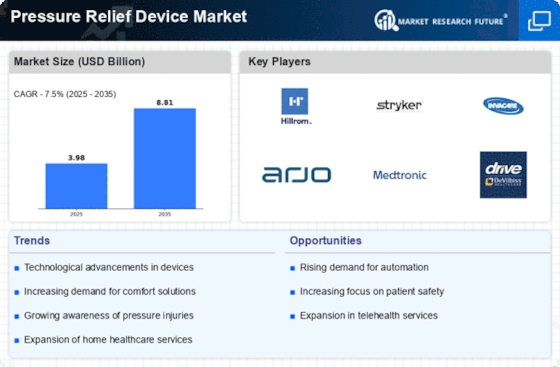
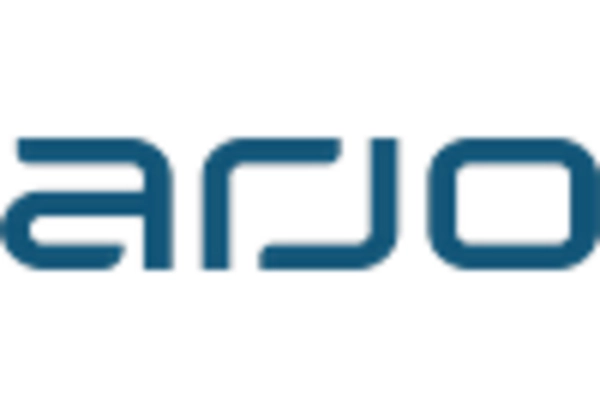
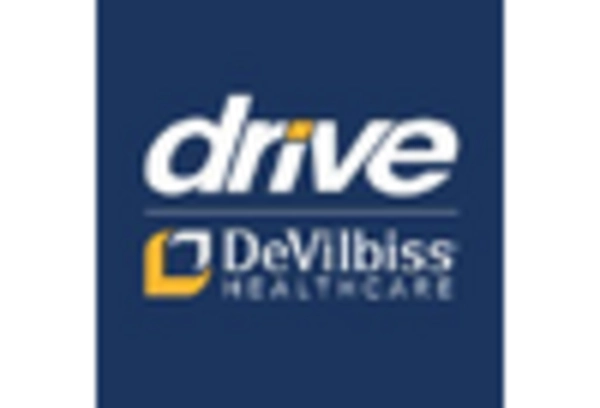
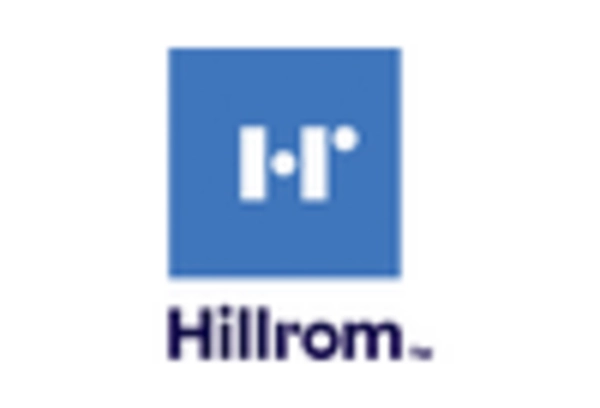
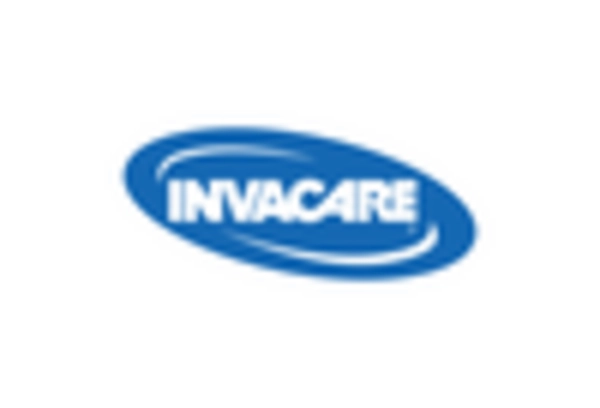
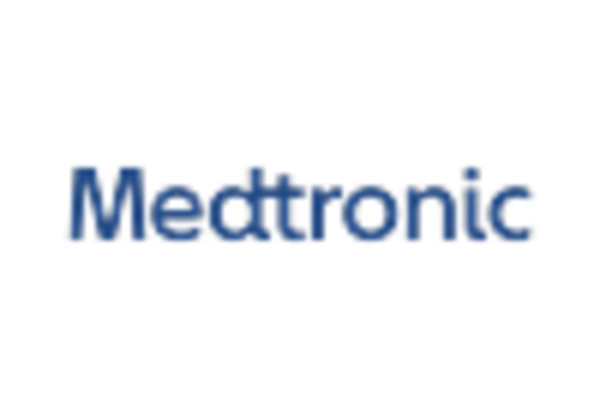










Leave a Comment